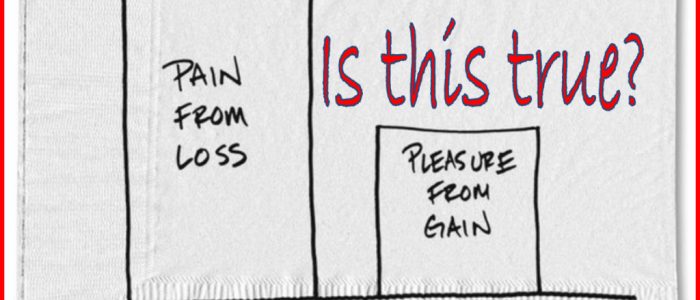We at Mobus Creative Negotiating have often cited the work of Nobel-Prize-winning economists. Today we turn to a different kind of champion, namely, a poker player. More specifically, Annie Duke – a World Series of Poker bracelet winner, the winner of the 2004 Tournament of Champions and the only woman to win the NBC National Poker Heads Up Championship. She… read more →
In the world, many firms are subcontracting out activities that in past decades they would have had employees do. Why is that? One of the modern economic theories which we use at Mobus Creative Negotiating is transaction cost economics by Nobel-Prize-winning economist John Williamson. He developed and expanded the work of Ronald Coase from the 1930s. The basic question they… read more →
Charles Lamb is a Johns Hopkins University brain surgeon who studies creativity and speaks about his work in a way any layman can follow; see https://www.ted.com/talks/charles_limb_your_brain_on_improv/transcript . He admits that his speciality is a little odd; as he puts it, “I have never had a patient tell me, ‘I really want you to be creative during surgery.’” He is fascinated… read more →
We at Mobus Creative Negotiating are constantly checking out the latest research to see what can help negotiators. We often talk about “behavioral economics” which one recent survey described as follows: “Much of behavioral economics consists in using psychological insights to influence behavior. These interventions tend to be small, often involving subtle changes in how choices are presented” (https://www.nytimes.com/2018/10/06/opinion/sunday/behavioral-economics.html). Debates… read more →
We at Mobus Creative Negotiating have long taught techniques for negotiating by phone as well as face to face. Well, that’s becoming passé. Phoning is so 20th century: no millennials speak on a phone. To quote an August 9, 2018, Washington Post article: https://www.washingtonpost.com/technology/2018/08/09/want-better-customer-service-dont-call-text, “Some 20 million businesses now use Facebook Messenger each month to talk to their customers.” Facebook’s… read more →
There is an easy way to avoid the perception of failure in negotiations: don’t ever do anything risky. Set the bar for success super-low, and you are likely to succeed every time at doing at meeting that (low) goal. Fear of failure dominates many negotiators, leading them to take few risks. A basic reason is what Carol Dweck calls… read more →
Negotiators often have to decide what to focus on. It might seem that people will naturally concentrate on what is most important; after all, that’s the rational thing to do. But as we at Mobus Creative Negotiating keep emphasizing, human beings are not always rational. Recent research by a team led by Johns Hopkins University professor Meng Zhu, published in… read more →
We at Mobus Creative Negotiating emphasize that people are not always rational: they often react emotionally even when that reaction does not appear to be in their best interest. We draw on the research of modern economics – often called “behavioral economics” – which has shown how often emotions trump reason. That is a huge change from “classical economics” which… read more →
Words we never hear these days, yet the most successful negotiators are those open to the possibility that in fact: you are correct, and I am mistaken. In a recent New York Times column https://www.nytimes.com/2018/02/17/opinion/sunday/liberal-conservative-divide.html?rref=collection%2Fsectioncollection%2Fopinion-columnists, Nicholas Kristof describes an experiment with 1,000 people. When asked to look at simple data and draw conclusions about a skin cream’s effectiveness, Democrats and Republicans… read more →
When Chief Justice John Roberts gave the address at his son’s 9th grade graduation last spring, he said he wanted to address “some of the harsh realities that everyone will face in the course of a full life:” From time to time in the years to come, I hope you will be treated unfairly, so you will come to know… read more →
Using the Truth to Mislead A widely used negotiating tactic, but one which we at Mobus Creative Negotiating do not recommend, is to use the truth to mislead. Philosophers call that “paltering.” A recent Washington Post article by Jena McGregor gives as an example: if the buyer to whom you are selling a used car says, “I presume it runs… read more →
How to Motivate Negotiators The common assumption is what motivates people is money. Makes sense – but what does the evidence show? Behavioral economists have done path-breaking research by questioning these sort of assumptions. We at Mobus Creative Negotiating have drawn much from the work of Dan Ariely. And so we turned eagerly to his new book, Payoff: The Hidden… read more →
Forecasts Show: Every Year is Above Average Many of us have a strong tendency to miss looming problems. We do not like to acknowledge that things may go wrong. This can be a real shortcoming when negotiating an agreement, because we make think that everything is going to work out great without being realistic about problems that may arise. Few… read more →
Prepare for a Negotiation, But Don’t Knock Yourself Out We at Mobus Creative Negotiating stress the importance of being prepared for a negotiation: learning about the other side, thinking about your strategy, and practicing. That is good advice. But as often in life, too much of a good thing can become a bad thing. In particular, do not make overwork… read more →
When Negotiating, Take Advice From the Other Side But Do Not Offer Them Comments When we are negotiating, those who can offer the best evaluation of how we are doing may well be the people on the other side of the table, that is, those with whom we are negotiating. Rarely will they offer us tips on how we could… read more →
“When ‘Yes’ Means ‘Not a Chance’” “When ‘Yes’ Means ‘Not a Chance” was the headline on an article by Kara Alaimo in the July 31, 2016 print edition of the New York Times . The article makes a point important for every negotiation: what the other side is saying is not necessarily what they actually mean. A good negotiator is always… read more →
Why Go Out of Your Way to Cooperate with the Other Side In many negotiating situations, it makes sense to ask for a concession from the other side each time you offer to do something for them. Mobus Creative Negotiating teaches how to be creative and insistent in concession-making: how many different things you can ask for and what arguments… read more →
Rationality Does Not Come Naturally In a famous set of 1970s experiments, Daniel Kahneman and Amos Tversky showed that many highly intelligent people are irrational. In one study, they had people read a description of a person and then asked which was more probable: that the person described was a bank teller or that she was a feminist and a… read more →


















Recent Comments